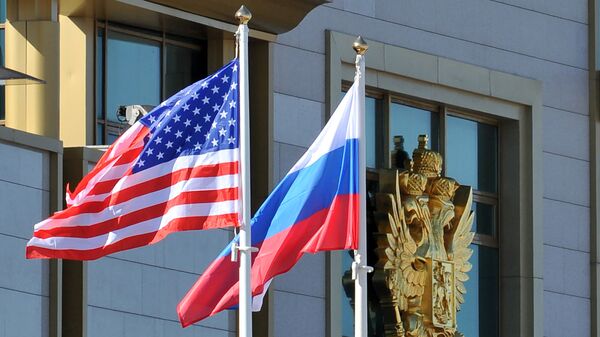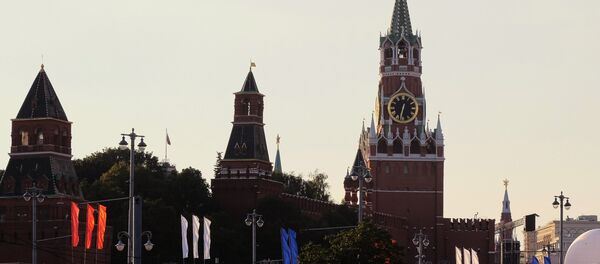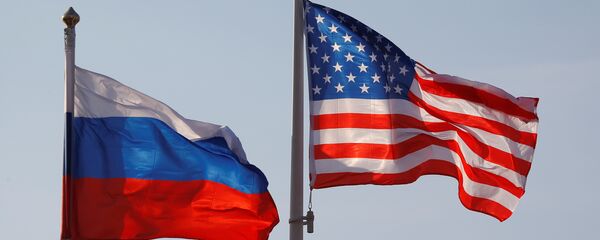All of this current hatred and fear against Russia makes me feel a bit nostalgic for my childhood.
When I was a kid growing up in the 60's, there was a popular film that everyone was talking and laughing about. It was called "The Russians are coming," and was a hilarious slapstick comedy, starring Alan Arkin, who played the captain of a Soviet sub that ran aground near a small town in Cape Cod.
One of the funniest scenes involved Alan Arkin and his fellow Soviet sailors, afraid of being discovered and trying to blend in, running into the town screaming "The Russians are coming! The Russians are coming!" in Russian accents. The movie ends on a happy note with the citizens of the town making friends with the sailors and helping them get their sub safely back to sea, surrounded by a flotilla of fishing boats to protect the sub from being destroyed by the US Airforce.
The movie signaled a definitive end to the Cold War. As Americans, we had moved past the mindless hysteria and thoughtless fear and could relax and have a good laugh about America being "attacked" by a group of Russian misfits.
Sad to say, if that movie were to play in cinema's today, it wouldn't be billed as a comedy but rather as a deeply disturbing portrayal of Russian evil and deceit and the thoughtless betrayal of America by Russian spies living among us.
Every day, we are given a new reason to hate and fear Russia.
READ MORE: US Think Tank Doesn't Expect Great Changes After Bolton-Patrushev Talks
Chinese premier Zhou Enlai once said: "One of the delightful things about Americans is that they have absolutely no historical memory."
Those of us who do have a historical memory know that the "hate and fear Russia" narrative isn't new. It actually goes back more than 100 years ago, when we invaded Russia. You won't find that fact in many US history books, but it's true. Back in 1918, the Wilson regime sent more than 5,000 US soldiers to fight in Northern Russia, just before the Siberian winter, in the midst of the Russian Civil War. When they got there, our boys were never entirely clear what they were supposed to do (sound familiar?). After several hundred US soldiers were killed in action, or died from cold and disease, they were brought home. Mission accomplished.
READ MORE: Coincidence? US State Dep't Creates Post Named After Russian Missile SARMAT
Dial forward to today. Just this week, the US Treasury Department announced the latest round of sanctions against Russia over cyber-attacks. This followed sanctions issued last week over Russia's alleged involvement in the Skripal poisoning in the UK. A few weeks before that, we sanctioned Russia over election meddling. Before that, it was a couple of rounds of cyber-related sanctions, before that three rounds of Ukraine-related sanctions…the list goes on and on; honestly, it's very hard to keep track.
So, Russia is once again our enemy. Cyber-attacks and election meddling aside, just what the hell is going on anyway? Why won't those Russians just leave us alone?
In a nod to Zhou Enlai, maybe a little more history is in order to remind ourselves just why it is that Russia is now once again and forever our enemy. And this has nothing to do with cyber-attacks and meddling. It's about containment.
Back in 1947, George Kennan, a US foreign service officer stationed in Moscow wrote a paper arguing for the need to "contain" Russia as a central pillar of US Foreign Policy. That paper became the centerpiece for Washington's policy of "containment" during the first Cold War. No matter that Kennan later recanted this policy saying it was both misunderstood and misapplied.
Despite the collapse of the Soviet Union, and the emergence of a democratic, free-market state in Russia, the US policy of containing Russia has remained the centerpiece of our foreign policy regardless who occupies the White House.
Trump like most President's before him came into office promising the American people to establish better relations with Russia. Most Americans agreed, and that is one of the reasons Trump was elected.
Fact is most Americans are not terribly happy with sending our troops abroad to fight in countries we barely even know exist, and can't place on a map (like Mali), and we certainly don't want to go to nuclear war with Russia in Russia's backyard over some conflict in Georgia or Ukraine, and certainly not in the deserts of Syria, that's for sure. The fact that we have spent trillions of dollars invading and occupying Iraq and Afghanistan and trillions more on operating more than 800 military bases overseas, and stationing hundreds of thousands of young men and women in 160 countries and territories around the world seems absolutely crazy to most Americans. What we want, and have always wanted is to solve the real problems we have in America.
As Clinton said: "It's the economy stupid!" That is what concerns the average American and, for all his craziness, Trump got that (with the exception of Iran, but that's a subject for another column).
Keeping in mind US containment policy, Russia's cardinal sin as far as our policy experts were concerned was when President Putin stepped into the Middle East to lead a diplomatic initiative to avoid the US attacking Iran over its non-existent nuclear weapons program. While he was at it, Putin brokered a chemical weapons deal which helped Obama avoid going to war in Syria in 2013. Obama was very grateful for Russia's help in solving these problems and said so publicly. But our experts who determine our foreign policy were decidedly less happy. These initiatives were not part of the national defense strategy playbook. Russia needed to be made to understand that the Middle East was America's sphere of influence and that the current US-led global order did not envision any role for Russia beyond its borders. And so, to teach Russia a lesson, our folks in the intelligence community began their "fun and games" in Ukraine by way of putting in motion a fascist coup in 2014. The thinking is that a little fire in Russia's backyard might drag them into a never-ending civil war and help to refocus their priorities away from the Middle East and closer to home.
When Russia failed to get drawn into a civil war in Ukraine, as our foreign policy "experts" anticipated, the "experts" had to go off script and use the pretext of the Crimean people's refusal to accept the new fascist government installed in Kiev as the rationale for sanctions against Russia. Obama was given the script to read, and dutifully did so, sadly bemoaning that Russia was "setting back decades of genuine progress."
Decades of genuine progress?
I was working in Moscow in the 90's, during the Clinton-Yeltsin "American-Russian Partnership and Friendship era" and saw the "genuine progress" at work in Russia during that decade. It included 30% unemployment, a shrinking population, rising rates of alcoholism, prostitution and drug use, hyperinflation, rampant criminality and corruption. It also included the expansion of NATO, the bombing of Russia's closest Slavic ally and neighbor Serbia, and the severing of Kosovo at the point of a NATO rifle.
Surely that isn't the genuine progress Obama was referring to?
Perhaps he was referring to the US funding, training, and equipping the Georgian military prior to its large-scale military invasion of South Ossetia in August 2008? Or maybe he was referring to the $5 billion the US spent fueling anti-government protests in Ukraine, and our support for the overthrow of the elected government of Ukraine by armed neo-Nazi fascists, hand-picked before the coup by assistant secretary of state Victoria Nuland?
You might forgive Russia for not wanting to return to those decades of genuine progress so wistfully recalled by President Obama.
Meanwhile, Washington has been relegated to the sidelines and is increasingly being made to look like the spoiled brat on the playground threatening to take his ball and go home.
Admittedly, our 70-year policy of containment is not working, but where does it leave us going forward?
With the injection of partisan politics into the Russian containment policy, and lists once again being prepared in Washington to name names, and Russian conspirators being found under, or in, every bed, we can only expect more sanctions going forward, if only because that is the only tool left in Washington's toolkit short of war.
Assuming our experts in Washington don't decide to use the last tool in the toolkit, someday perhaps we will once again be able to watch that old movie "The Russians are Coming" and see it for the comedy it is.
In the meantime, as for Russia, "the dogs' bark but the caravan goes on."
The views and opinions expressed by Andrew White are those of the contributor and do not necessarily reflect those of Sputnik.







